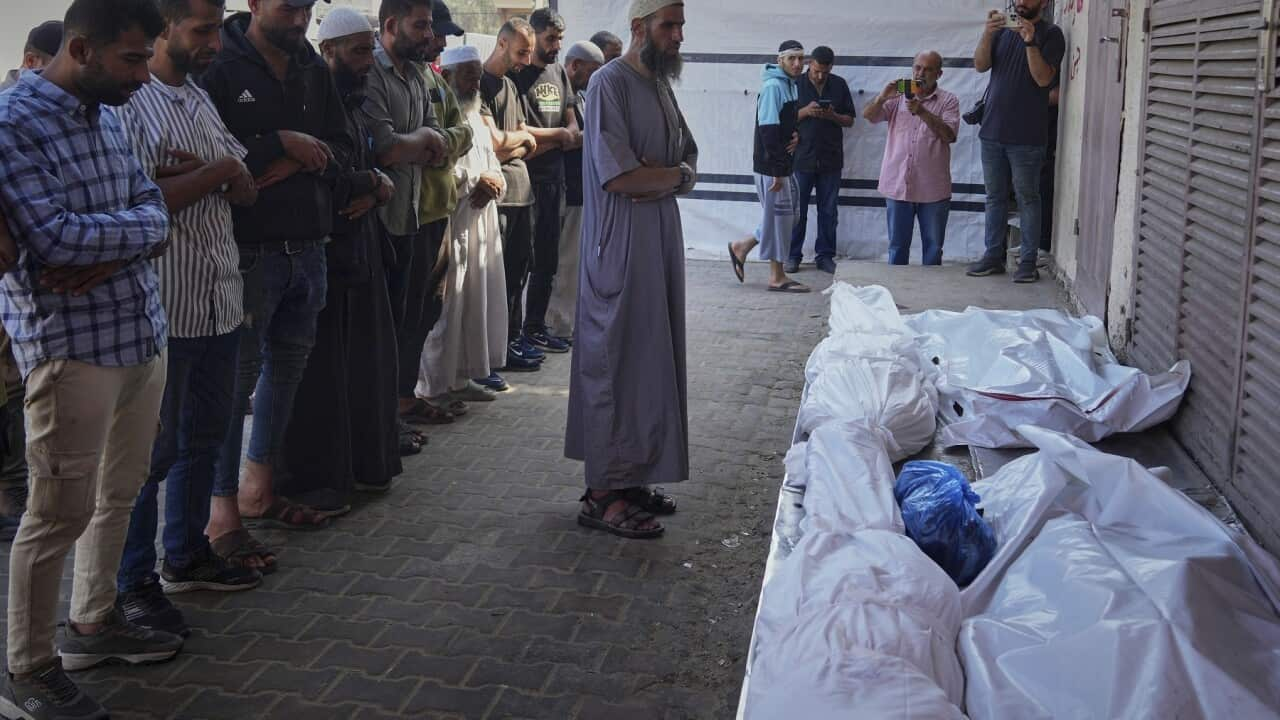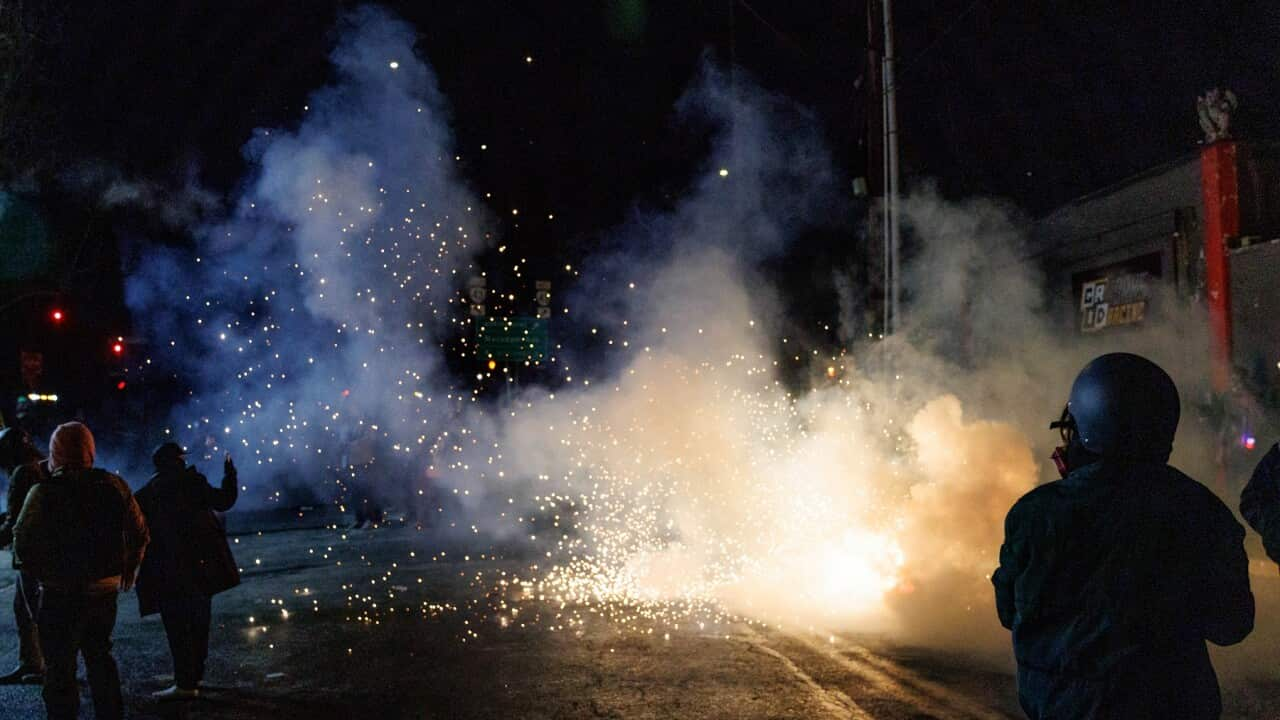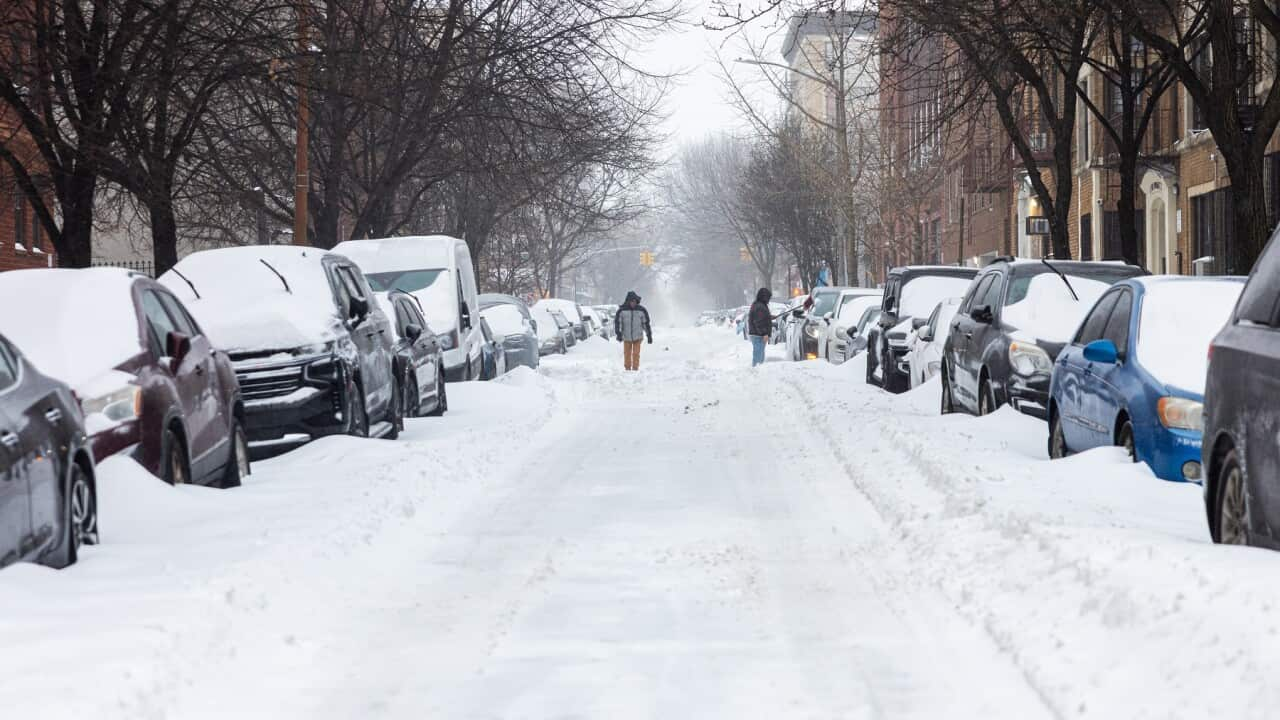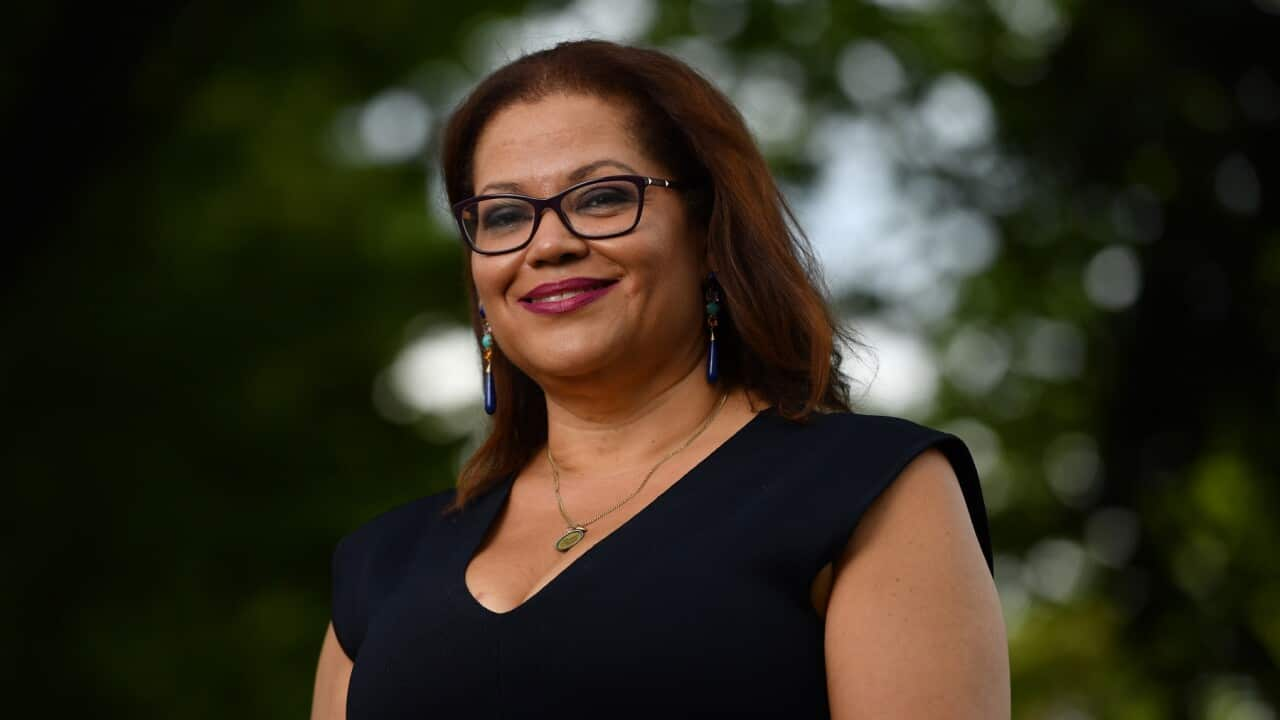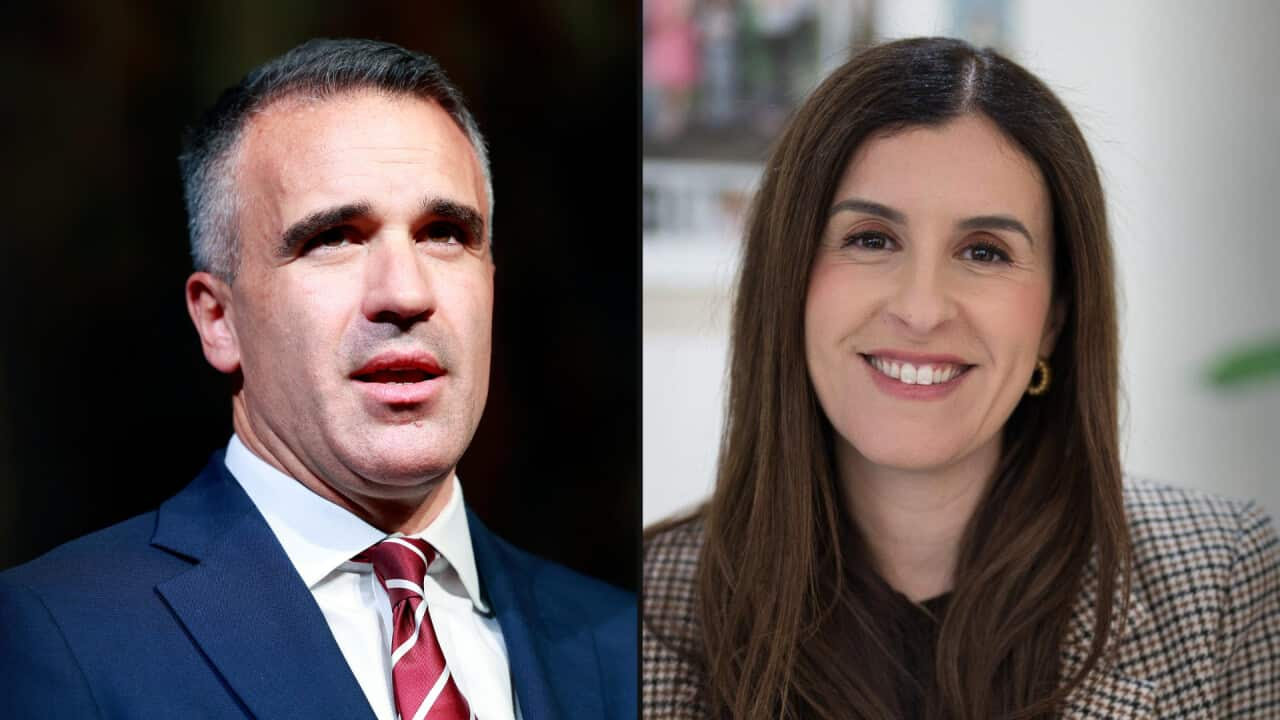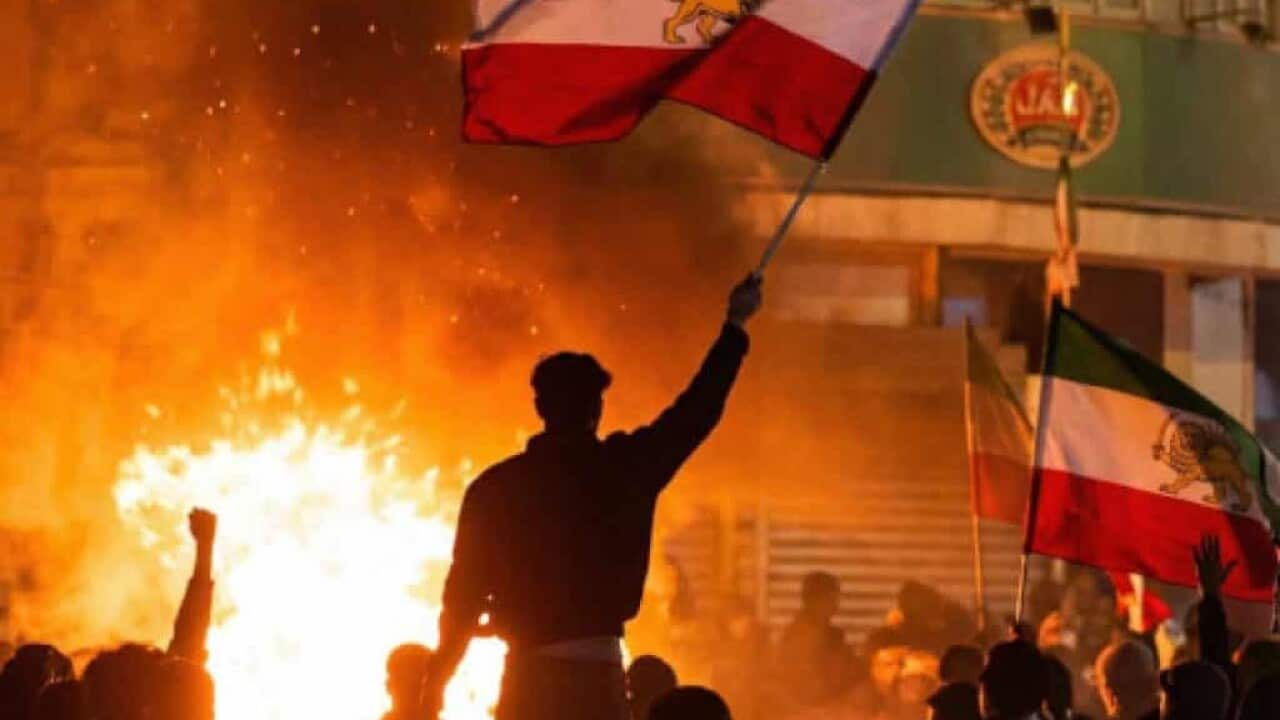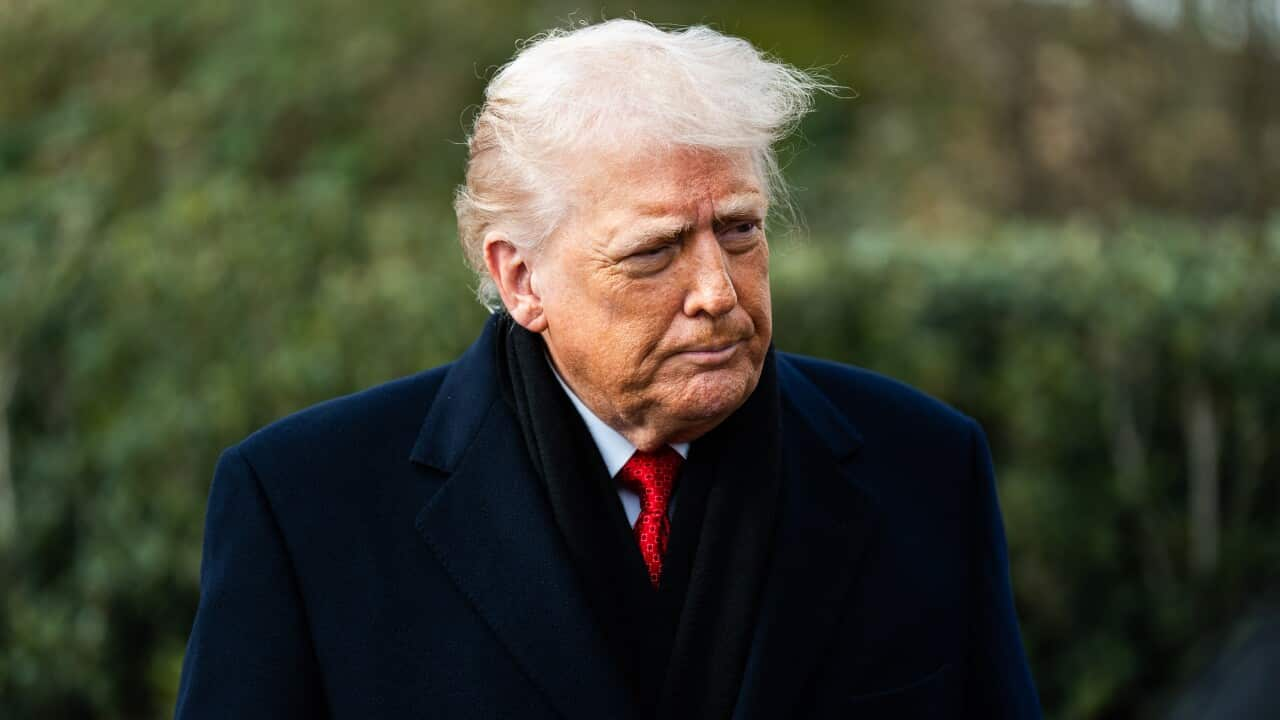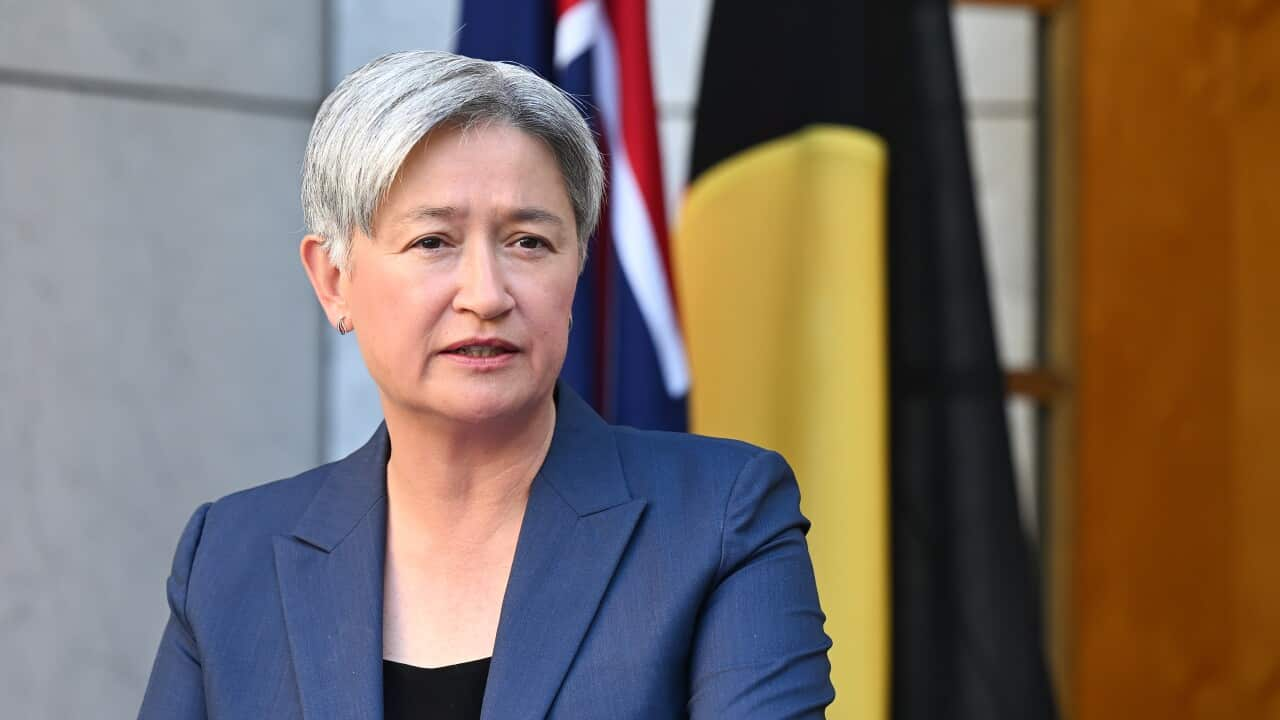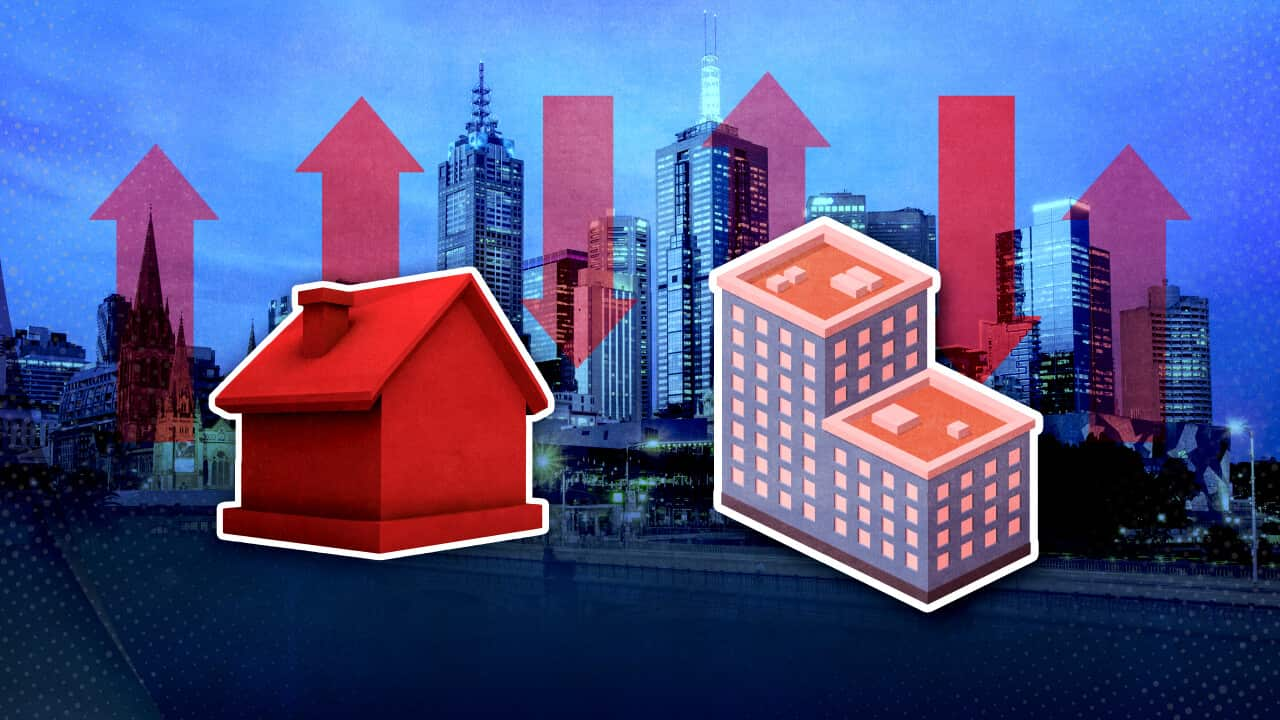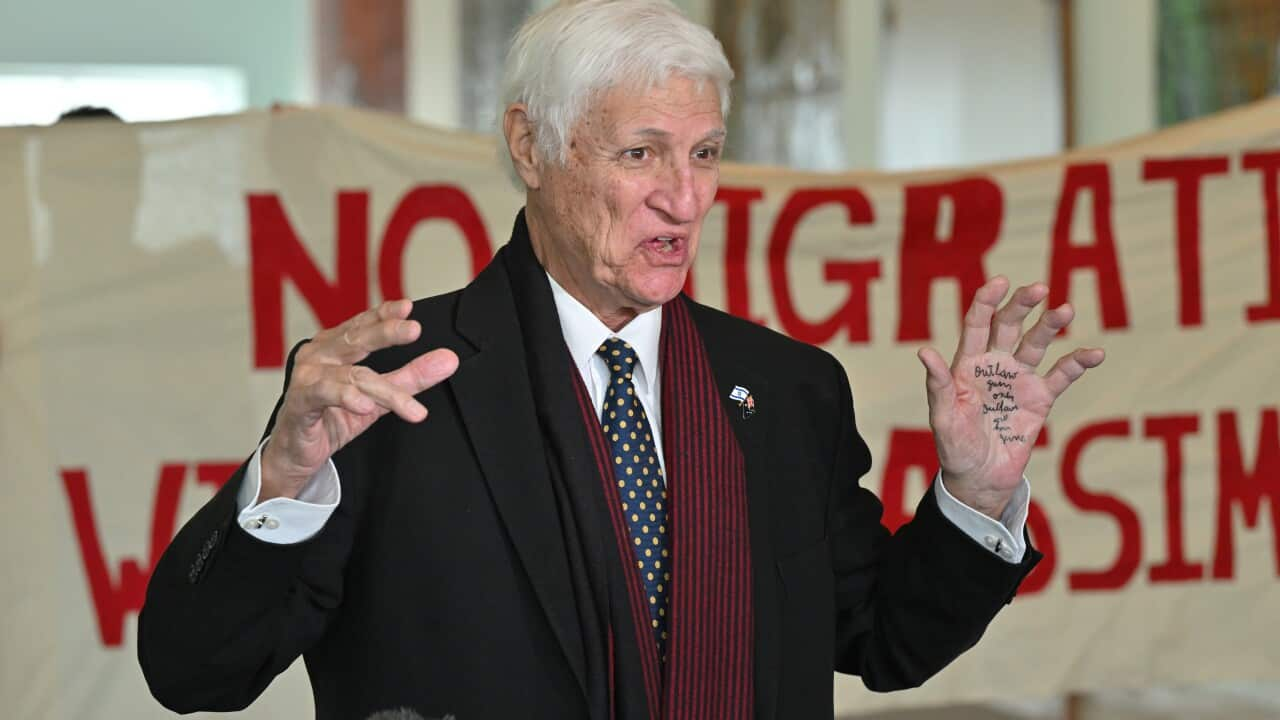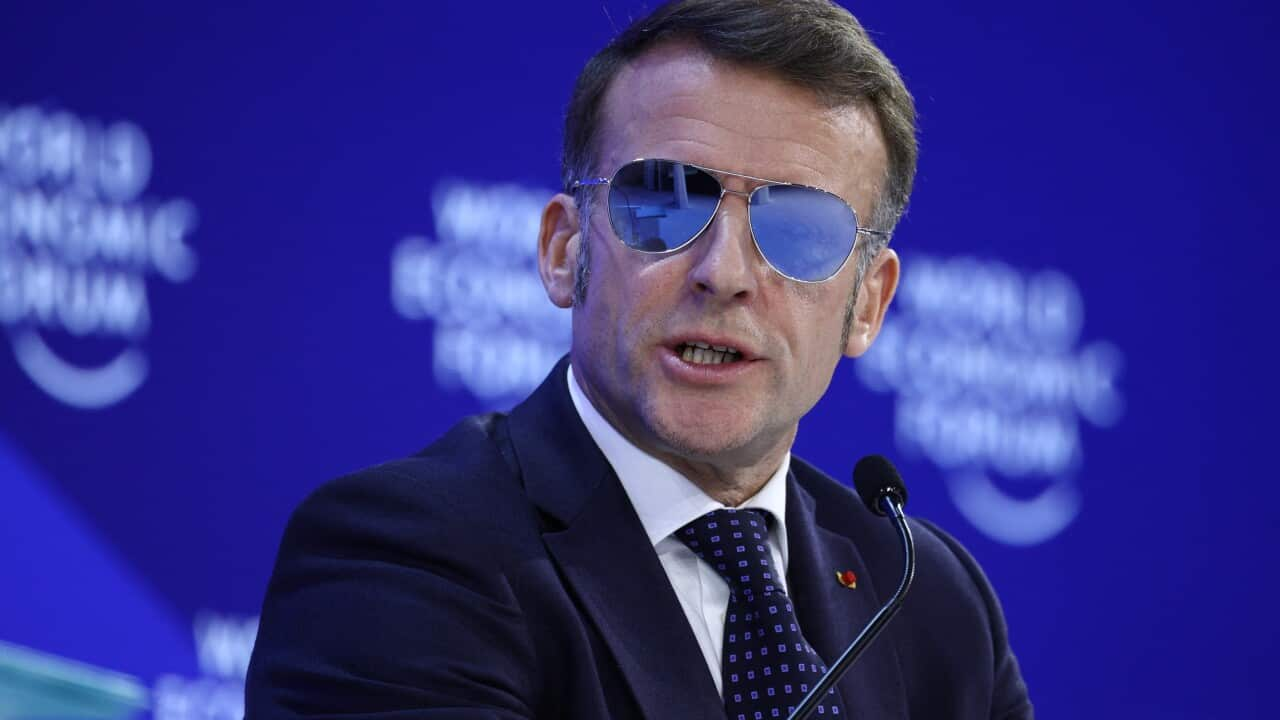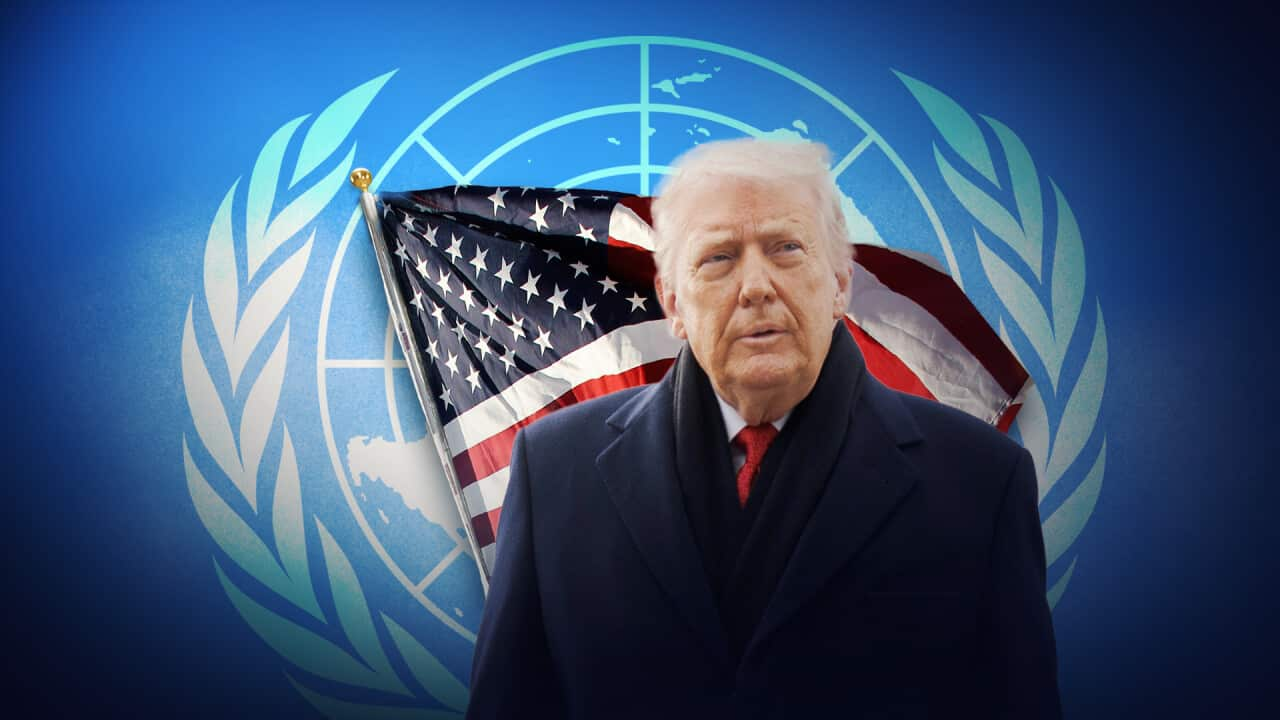Listen to Australian and world news, and follow trending topics with SBS News Podcasts.
TRANSCRIPT
Israel has killed at least 17 people, including 10 children, in a strike near a medical facility in Deir el-Balah.
US-based charity Project Hope, which runs the facility and provided the death toll, says the victims, mostly women and children, were queuing outside the clinic to receive treatment for malnutrition, infections and illness.
UN aid workers say that one victim was a one-year-old boy, who, according to his mother, had uttered his first words just hours before the strike.
Umm Muhammad Mishmish lost her three-year-old granddaughter Aya in the strike.
"They deliver aid at this distribution point. They targeted children and women. What was their fault to deserve death? What’s the fault of this child who’s three-four years old. What did she do wrong for them to kill her? What did they do? These people are hungry and they just learned of a place where there’s food that they could go to. People died out of hunger. People are oppressed. Why is all of this happening?"
According to the United Nations, more than 600 people have been killed in Israeli attacks while seeking aid in Gaza since late May.
Health officials in Gaza say those killed in Deir el-Balah were among 66 people killed in Israeli strikes on Thursday.
The Israeli military says it was targeting a Hamas militant in Deir el-Balah.
UN spokesman Stephane Dujarric says the UN condemns the deaths of civilians lining up for food.
"In a statement issued a short while ago, Catherine Russell, the executive director of UNICEF, said she was appalled by these reported killings of 15 Palestinians, including nine children and four women who were just waiting in line for nutritional supplies for their children. And I can tell you that we yet again condemn the killings of civilians in Gaza."
The attacks come as Israeli Prime Minister Benjamin Netanyahu says Israel is ready to negotiate a lasting deal with Hamas when a temporary halt to hostilities begins.
Delegations from Israel and Hamas began indirect talks in Doha on Sunday to try to agree to a 60-day temporary halt in Israel's war on Gaza.
Hamas officials say the group agrees to release 10 living hostages but won't accept Israel's continued occupation or Palestinians being moved into isolated enclaves in the densely populated territory.
Mr Netanyahu, who is under increasing domestic pressure to end Israel's war, says there's a good chance for ceasefire.
"I think on these matters, which I always prefer to negotiate not in front of a camera, I think there's a good chance we'll have the ceasefire. And that'll get us closer to the goal that I said from the beginning. Let's get them all back without capitulation."
Mr Netanyahu says 50 hostages are still being held captive by Hamas.
Of that figure, he says, only 20 are believed to be alive.
Israeli Foreign Minister Gideon Saar says he believes a deal is achievable.
"Israel is serious in its will to achieve a hostage deal and the ceasefire in Gaza, and I believe it is achievable. We sent a delegation to Doha and we are negotiating there already for the 5th day. And according to the framework, if a temporary ceasefire will be achieved, we will negotiate on a permanent ceasefire."
Meanwhile, a United Nations team delivered about 75,000 litres of fuel into Gaza on Wednesday [[09/07]], the first such delivery in 130 days.
Mr Dujarric says the fuel delivered will not last more than a day.
"As we mentioned yesterday, we and our humanitarian partners need hundreds of thousands of litres of fuel each day to keep essential lifesaving and life-sustaining operations going, meaning that the amount entered yesterday isn't sufficient to cover even one day of energy requirement. Fuel is still running out and services will shut down if greater volumes do not enter the Gaza Strip immediately. One partner, for instance, reported to us this week that in a matter of days, fuel shortages could cut off supplies to clean drinking water to about 44,000 children that depend on that water source."
Due to the fuel shortages, doctors at Gaza City’s Al-Helou hospital say they are struggling to care for newborn and premature babies, who are crammed into single incubators.
Overwhelmed medics say dwindling fuel supplies threaten to plunge them into darkness and paralyse hospitals and clinics in Gaza, where health services have been largely decimated by Israel.
Paediatrician Ziad al-Masry says without fuel and more incubators, newborn babies at the hospital are in grave danger.
“There are three or four newborn babies in one incubator. It is designed to accommodate one child, one premature baby. Our situation is like a disaster, the cramming of children leads to the spread of illness and inability to deal with them, and therefore leads to a direct danger to them. We are in need of more incubators, in order to deal with the number of newborn babies, and especially premature babies.”
In Europe, French President Emmanuel Macron is calling on European countries to recognise the State of Palestine.
After meeting with British Prime Minister Keir Starmer for talks in the UK, Mr Macron expressed the need for Europe to join together in this.
"Together, we understand the necessity of offering a political path. I believe in the future of the two-state solution as the foundation of a regional security architecture that will allow Israel to live in peace and security with its neighbours. I believe in the need to unite our voices in Paris, London, and everywhere else to recognize a Palestinian state and initiate this political dynamic, which is the only one consistent with a perspective of peace."]]
UK Prime Minister, Keir Starmer, meanwhile stressed the urgent need for aid, a ceasefire, and the release of hostages.
"The situation in Gaza is utterly intolerable. And, we need a ceasefire. We need aid to go in at volume, at pace in a way that simply isn't happening on the ground at the moment. And, of course, we need the hostages to be released. They've been held for a very, very long time."
Meanwhile, UN special rapporteur for the West Bank and Gaza Francesca Albanese has dismissed sanctions imposed on her by the United States.
The US State Department issued sanctions on the UN human rights experts for her vocal criticism of alleged human rights abuses in Gaza and the West Bank.
Israel has long had a rocky relationship with the Human Rights Council, Ms Albanese and previous rapporteurs, accusing them of bias over their criticism of Israel.
The latest complaints against Francesca Albanese came after she released a report on corporations she says are profiting from Israel's occupation.
Francesca Albanese says the sanctions are a clear display of efforts to silence criticism of Israel.
“The United States is receiving with honour someone who is wanted by the ICC for war crimes and crimes against humanity. And instead of making justice, it's sanctioning the ICC and the person who asking him to be accountable. Makes no sense. We need to really help this moment, this transition, to happen. For the better. We need to reverse the table, we need to reverse the tide. And in order for it to happen, we need to stand united. They can not silence us all. They can not kill us all. They cannot fire us all. The only way to win over is to throw our fear.“
